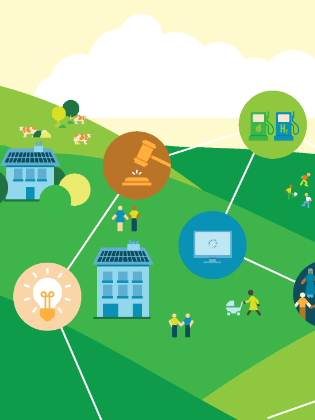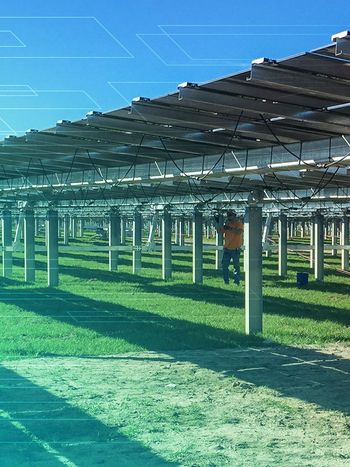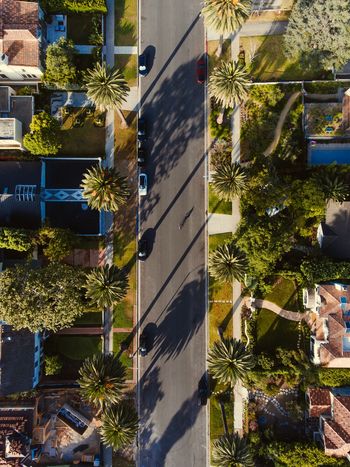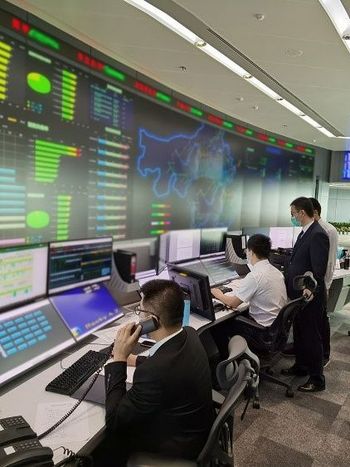CEO COVID-19 Diaries: Impacts on energy supply, impacts on grids, impacts on people
This weekend, 1 August 2020, marks the completion of my fifth month in charge of our company in the Netherlands. To be honest, I would love to be writing an article about power systems, about the energy transition, about decarbonization and how we are facing up to the technical challenges, or about how we have delivered critical national electrical infrastructure for our clients in the Netherlands. But I can't.

CEO Siemens Energy B.V. in the Netherlands
The brutal truth is that, since I took on my new responsibilities as CEO on 1 March, most of my time has been spent trying to keep people alive and to maintain some semblance of business continuity. I guess that, from speaking to other business leaders in the Netherlands and across the CIGRE network, it’s very much the same for many of us.
Stepping on to the roller coaster
I recall the excitement of starting the new job, and how it was quickly replaced by stark realization of what was happening. We had seen issues for our projects in South Korea since the turn of the year and how this was spreading and gaining momentum.
By mid-March, just about the only subject in the diary was Corona. We deployed everyone to work from home, equipping everyone with the basic essentials. We deployed new virtual working platforms over a weekend, when normally this would have taken months.
We were extremely fortunate in the Netherlands, compared to our neighbors and friends. Our lockdown was “intelligent” and we could still have limited access to the office.
And then the unthinkable happened: a confirmed case in our senior team. March was a roller coaster.
Volatile. Uncertain. Complex. Ambiguous: a ‘zoo’
Horrible and amazing. That’s how my Dutch colleague described our existence. Like everyone, we worked all hours to ensure that everyone was safe, repatriating staff from around the globe. I can honestly say that no crisis management simulation would have prepared us for some of the issues, but we overcame the complexity. Closer to home, not everyone wanted to understand that we would not be ‘back to normal’ by June, struggling with the uncertainty and ‘trade-off’ between business continuity and perceived safety. Each day was a ‘New Zoo’. I learned the art, as many have done, of ‘dynamic agility’ in dealing with our new business issues within the super-volatile Corona environment.
Overall, I have been impressed by the dedication, resilience, and adaptability of our colleagues across the energy industry in dealing with the environment, keeping safe, delivering for our customers, AND ensuring that our wider family is kept in the best of health.
Our energy industry has seen some local impact during this year, with a number of major outage programs delayed or cancelled. Critical outages were ongoing, with enhanced PPE protocols. But the changes to the PPE caused new challenges: with face masks causing eye protection to ‘fog’ up we started seeing increases in hand injuries. A rapid change in masks solved the fogging but was an important lesson in cause and effect analysis.
I have to say that the Corona situation has led to an even closer working relationship with our key customers at both senior and operational levels, sharing best practices and keeping people safe. Meetings over video naturally include safety and health discussions and we have been more than happy to share our learning, both good points as well as ‘knowing what I know now, what would I have done differently…’.
By the end of May, we had built our ‘new normal’ office concept, piloted it with one of our teams and were ready for deployment of a new socially distanced layout in three facilities by the end of June. Yes, we can be agile and deliver.
However, concern around the energy industry remains that the major impact of the Corona virus will actually be seen into next year, when the implications of delays to FEED studies can be seen to generate delays to forecasted business and project work. This is also concerning for how the energy transition and critical actions towards decarbonization will move forward. Simply, we cannot accommodate delays to the electrification.
Resilience, risk and investment prioritization
So what will be the impact of COVID-19 on investments, on, supply chains, on decarbonization, and the energy transition? Speaking with an energy industry CFO in the past few days, it was clear that supply chains and proximity are under major scrutiny across the industry. As I was told, Far East Asia may be the low unit cost solution, but not necessarily any more the lowest total cost solution, due to the ‘new (risk) normal’.
My ‘light relief’ from COVID-19 has been the energy transition and decarbonization. Participating in web meetings, web seminars and customer virtual round tables has provided a great “out” from dealing with the new normal realities. Our customers and stakeholders here in the Netherlands are moving noticeably quicker than before, perhaps in the realization that Corona actually will drive acceleration of the transition agenda.
The pandemic looks like that it will continue for the foreseeable future. The impact and implications will be visible for years to come. There will be no ‘back to normal’ for many of us. Speaking with a senior colleague in the City of London with responsibility for investment in ‘green energy’ and renewables, we joke about the ‘Exam Question’ of our time: “Will Corona slow down or accelerate the energy transition and investment in decarbonization?” The jury remains out, but consensus is moving towards some important negative impact upon traditional CapEx, with the funds available being focused towards new energy. But the message is clear: cash will have an even greater importance for business, so get your regular projects done on time, with minimal fuss, so that we can focus the energy and expertise towards the new challenges.
Embracing the ‘new normal’ working
And please don’t tell us that we are ‘coming back to work’ when we get access once again to our office environment, our ‘socially distanced, new normal’. I get the impression that we have never worked so hard. I appreciate the questions on productivity and the ‘invisible’ productivity loss. Sure … but everyone is safe and well. Thankfully.
I completed my personal appraisal, only failing on my completion of the crisis management training (I’m not kidding). We’ve packed an awful lot of real life into the past five months.
So, what have I really learned from the Corona experience? Firstly: resilience, I would guess, then a real ability to listen, to be more adaptable to change and transition; able to try things that are not fully developed, nor proven, without so much fear of less-than-perfect delivery. When there is no going back, forward is ‘easier’.
Whatever doesn’t kill you makes you ‘different’
In all seriousness, my focus now is turned towards the wider implications around the mental health of our colleagues and co-workers as we grapple with the ‘new normal’ business realities. Our employees have stepped up, grasped the situation, and have delivered outstanding customer care, keeping the lights on, and supporting critical national infrastructure. Feedback from our clients has been great.
Some of our business leaders have thrived; others have struggled with the stark realization that we will now have to manage teams remotely, seeing colleagues occasionally, or just by video.
Some colleagues remain deeply concerned and distressed by the concept of having to come back to an office environment, irrespective of how ‘safe’ our socially distanced installations are claimed to be, or how ‘clean’ our air conditioning systems can ever be. Some colleagues struggle with the concept of ‘social distancing’ and some colleagues are unable to count when see a sign marked ‘maximum 3 people in this meeting room’.
Thankfully, our colleague recovered fully from COVID-19.
For me, it’s now ok to say that you’re ‘not ok’.
Please: keep safe.
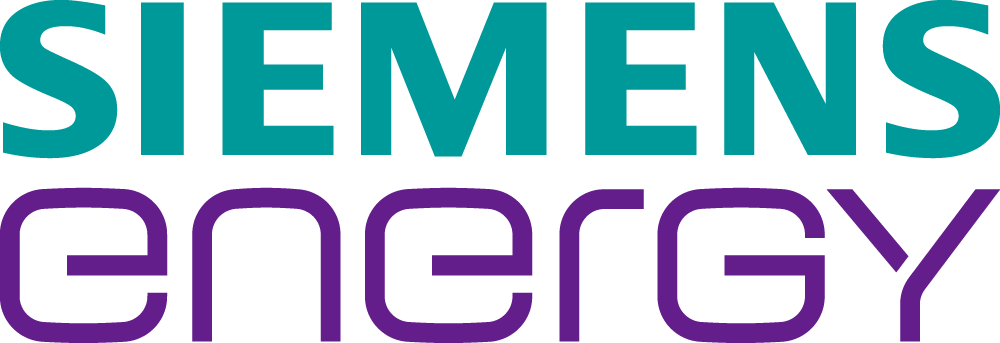
Adam Middleton heads Siemens Energy B.V. in the Netherlands, in addition to his role as Chair of CIGRE UK and member of the CIGRE Steering Committee.
